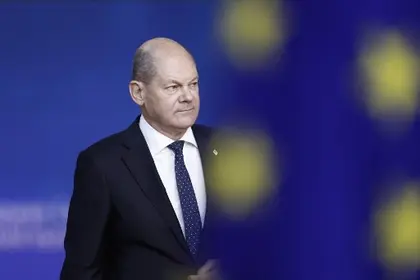German Chancellor Olaf Scholz declared on Thursday, Oct.20, that Russian President Vladimir Putin’s use of energy and hunger as weapons has failed to divide the West and he would not win the fight by utilizing scorched earth policies.
In his address to the legislature, the Bundestag, Scholz also noted that Germany had ended its reliance on Russian gas and was working to lower energy costs, but he cautioned that by setting a cap on gas prices the European Union ran the risk of unintended consequences.
JOIN US ON TELEGRAM
Follow our coverage of the war on the @Kyivpost_official.
As a result of the Russian army’s latest assault on Ukraine’s energy infrastructure, which resulted in blackouts, Ukraine has imposed limits on how much electricity is used for the first time since the Russian invasion in February.
“We will not let Moscow’s latest escalation go unanswered … Scorched earth tactics will not help Russia win the war. They will only strengthen the unity and resolve of Ukraine and its partners,” Scholz addressed the assembly.
“All the lies and propaganda, the talk of ‘special operations’ and swift victories – all that was just a facade, like a Potemkin village.”
The targeting of civilians is disputed by Russia.
The leaders of the European Union’s 27 member countries were preparing to meet for the second time in two weeks on Oct. 20 to try to lower energy prices, but disagreements remained over proposals to cap gas prices at the time Scholz spoke.

Ukrainian Drone Reportedly Strikes Russian-Seized Ship in Crimea
The 27 are expected to support a different price baseline for LNG (liquified natural gas) and cooperative gas purchasing.
However, after Russia interrupted gas flows during its invasion of Ukraine, the nations are still divided on whether and how to impose a price cap on gas to combat excessive inflation and avoid a recession.
Although 15 nations, including France and Poland, are pushing for some kind of cap, Germany and the Netherlands, the continent’s largest economies and top gas consumers, respectively, are strongly opposed.
According to Scholz, a politically driven gas price differential could force producers to sell their product elsewhere, which would reduce the amount of gas the EU receives.
“The EU must coordinate closely with other gas consumers like Japan and Korea so as not to be in competition with each other,” he argued.
“At the same time we are also talking with producers about an appropriate price. I am convinced (that) countries like the U.S., Canada or Norway, who stand with us on Ukraine’s side, have an interest in Europe’s energy not becoming unaffordable.”
You can also highlight the text and press Ctrl + Enter






